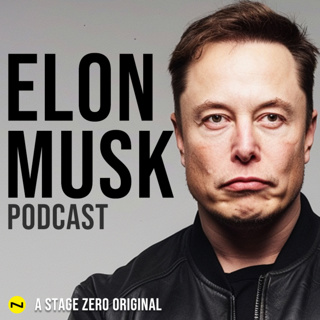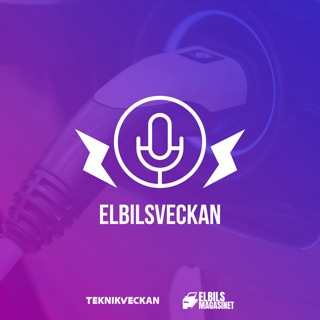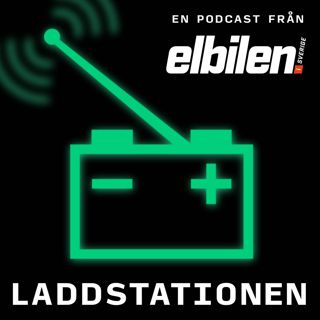
GM Abandons Robotaxi Race as Tesla Charges Ahead with Self-Driving Plans
Join our Discord Community! https://discord.gg/kqW2RZVHcc General Motors announced Tuesday a fundamental restructuring of its autonomous vehicle strategy, abandoning its robotaxi ambitions to concentrate on developing self-driving technology for personal vehicles. This strategic pivot marks the end of GM's high-profile bet on Cruise LLC, its majority-owned subsidiary that aimed to revolutionize urban transportation through driverless taxis. The decision sends ripples through the automotive industry as GM, America's largest automaker, moves to consolidate its autonomous driving efforts under a unified structure. The company plans to merge Cruise's technical teams with GM's existing autonomous vehicle division, creating a single focused unit dedicated to advancing driver assistance systems and autonomous capabilities for consumer vehicles. Mary Barra, GM's chair and chief executive officer, framed the decision within the company's broader strategic vision. "GM is committed to delivering the best driving experiences to our customers in a disciplined and capital efficient manner," Barra stated, emphasizing the company's determination to maintain its position in the evolving automotive landscape while managing resources more effectively. The financial implications of this strategic shift are substantial, with GM projecting annual savings exceeding $1 billion once the restructuring concludes in the first half of 2025. This cost reduction comes at a crucial time for the automotive giant, which has invested heavily in autonomous technology development over the past decade. Cruise employees learned of the dramatic shift during a hastily arranged all-hands meeting Tuesday afternoon, where senior leadership, including CEO Marc Whitten, delivered the news. The announcement left many workers surprised and uncertain about their future roles, particularly those in non-engineering positions related to robotaxi operations.
12 Dec 20246min

Tesla to launch $30,000 Model Q Car 2025
Join our Discord Community! https://discord.gg/kqW2RZVHcc Tesla is reportedly gearing up to launch a new affordable vehicle, tentatively referred to as the 'Model Q,' in the first half of 2025. Deutsche Bank analysts, following a recent meeting with Tesla's head of investor relations, Travis Axelrod, disclosed the vehicle's projected price—less than $30,000 when including subsidies. Without U.S. EV tax credits, the price could rise to $37,499. Analyst Edison Yu characterized this move as part of Tesla's strategy to expand its total addressable market (TAM), with the Model Q joining a lineup potentially augmented by other innovations such as a longer-wheelbase Model Y variant for China. The announcement aligns with Tesla's long-term goals of broadening its appeal by diversifying its lineup and targeting underserved market segments. The Model Q would be smaller and lighter than the current Model 3—by approximately 15% and 30%, respectively. Analysts speculate it will serve as an entry-level model with streamlined features to keep costs down while maintaining Tesla's reputation for cutting-edge technology. China's Role in Tesla's Growth Strategy In addition to the Model Q, Tesla appears poised to target the Chinese market with a new variation of its Model Y. Rumors suggest this vehicle will feature a three-row configuration and a longer wheelbase, aiming to appeal to families and compete with domestic automakers like BYD. While Tesla China has declined to confirm specifics, the move could address growing competition in a market where affordability and versatility drive consumer preferences. This potential Model Y variant reflects Tesla's strategy of tailoring its offerings to regional needs. By focusing on China—a crucial EV market—Tesla could enhance its competitiveness while reinforcing its global growth objectives. According to Deutsche Bank, this diversification in product design could be instrumental in boosting Tesla's production and delivery numbers in the coming years.
11 Dec 20247min

Elon Musk Faces Assassination Threat
Join our Discord Community! https://discord.gg/kqW2RZVHcc Elon Musk, the world's richest man, has received an apparent assassination threat on the social media platform Bluesky The threat comes in the wake of the recent shooting death of UnitedHealthcare CEO Brian Thompson Thompson was killed in a brazen daylight attack as he arrived at a company event in New York City Musk's high-profile status, including his role in the incoming Trump administration, has made him an increasingly visible target Corporate security experts report a surge in executives seeking to bolster protective measures following Thompson's killing The article explores the growing vulnerability of top business leaders, even those with substantial security resources It highlights the complex security challenges faced by figures like Musk as their public profiles and political involvement have increased The piece underscores the broader implications for the stability and resilience of the corporate world in the face of such threats
10 Dec 20248min

Can Musk and Ramaswamy’s DOGE Plan Really Slash $2 Trillion—or Is It All Bark?
Join our Discord Community! https://discord.gg/kqW2RZVHcc Elon Musk and entrepreneur-politician Vivek Ramaswamy presented their ambitious proposal to shrink federal spending and reduce government inefficiencies in Washington this week. Dubbed the Department of Government Efficiency (DOGE), their initiative proposes saving $2 trillion in federal spending, though specifics were notably scarce. The pair met with members of Congress, primarily Republicans, to gauge support and discuss the viability of their plan. Among those in attendance was Representative Tom Cole, a seasoned Republican from Oklahoma and the incoming House Appropriations Committee chair, who offered measured skepticism. Cole, reflecting on his conversations with Musk and Ramaswamy, noted their effort to understand "the full scope" of their proposal and the extent of executive authority they might wield. His remarks hinted at the constitutional limitations the duo could face. "How much would be done by executive action?" he asked, underscoring Congress's constitutional role in appropriations. Appropriations remain at the heart of federal spending, requiring Congress's active involvement. Legislative attempts to bypass this process, such as impoundment, often encounter resistance from the judiciary and Congress itself. The 1974 Budget Control and Impoundment Act, a legislative response to President Nixon's unilateral actions during his impeachment crisis, fortified Congress’s role in spending decisions. Musk and Ramaswamy’s DOGE initiative must therefore navigate not just political, but legal constraints. History suggests that lofty goals to overhaul federal spending have faced immense challenges. The proposed $2 trillion in savings is ambitious, but the absence of specific strategies raises doubts about its feasibility. To understand the hurdles facing DOGE, it’s crucial to examine the lessons of past efforts to reform government spending. Efforts to reform federal spending have long been central to Republican policy agendas. During his 1980 presidential campaign, Ronald Reagan criticized the ballooning federal debt, which was nearing $1 trillion at the time—a figure that seemed unthinkable then. Reagan entrusted his first Office of Management and Budget (OMB) director, David Stockman, with implementing steep budget cuts. Stockman targeted social programs with fervor, equating budget excesses to moral failings. Yet, Stockman’s efforts quickly ran into opposition from Democrats and even some Republicans. Reagan’s broader fiscal policy, which included large tax cuts and increased military spending, further undermined his administration's deficit-reduction goals. By the end of his first term, the national debt had doubled, and by the time Reagan left office, it had tripled. Stockman, disillusioned, exited the administration and later published a memoir, The Triumph of Politics: Why the Reagan Revolution Failed, chronicling his frustrations. Reagan’s later attempts to streamline government included appointing J. Peter Grace to lead a commission on government efficiency. Though the commission unearthed useful recommendations, its impact was marred by revelations about Grace's company, W.R. Grace & Co., having paid minimal taxes. These optics undermined public confidence in the commission’s efforts.
9 Dec 20248min

Elon Musk Weekly News Update: Tesla, SpaceX, X, Neuralink, and More
Join our Discord Community! https://discord.gg/kqW2RZVHcc ABOUT The Elon Musk Podcast The Elon Musk Podcast takes an in-depth look into the world of the visionary entrepreneur. From SpaceX's mission to colonize Mars, to the revolutionary underground transportation network of the Boring Company, to the cutting-edge technology of Neuralink, and the game-changing innovations of Tesla, we cover it all. Stay up to date with the latest news, events and highlights from the companies led by Elon Musk. ABOUT STAGE ZERO STAGE ZERO is the YouTube home for all things Elon Musk and the STAGE ZERO Podcast Network. STAGE ZERO features over 10 years of SpaceX, Tesla, Twitter news as well as exclusive videos from podcasts like The Elon Musk Podcast. Affiliate Links - #ad SHURE SM7B Mic - https://geni.us/shure-sm7b-microphone
8 Dec 202448min

Musk's War on WFH
Join our Discord Community! https://discord.gg/kqW2RZVHcc Federal Workforce Faces Extensive Remote Work Monitoring Under New Trump Administration Plan How will the 94% of federal employees who currently work remotely respond when they discover their every keystroke and login could soon be tracked? The answer may arrive sooner than expected, as Elon Musk and Vivek Ramaswamy advance their proposal for comprehensive federal worker surveillance. The Department of Government Efficiency, known as DOGE, stepped into the spotlight this week as its newly appointed leaders, Musk and Ramaswamy, presented their strategy to Republican lawmakers during multiple closed-door sessions on Capitol Hill. Their primary objective centers on achieving $2 trillion in federal budget reductions through what they term the elimination of government waste. Senator Joni Ernst from Iowa emerges as a central figure in this developing story, having released a detailed 60-page report examining the current state of government remote work. The report presents striking statistics, claiming that merely 6% of federal employees work full-time in physical office locations. Ernst, who chairs the Senate DOGE caucus, draws from her agricultural background to criticize the current remote work situation, stating, "Growing up on a farm, I know what working from home really means. But in Washington, working from home apparently means having a field day." The proposed REMOTE Act, sponsored by Ernst, introduces comprehensive monitoring software designed to track federal employees' computer activities. This technology would maintain detailed records of network traffic, login frequencies, online duration, and overall digital engagement patterns for remote workers. The legislation represents a direct response to concerns about remote worker productivity and accountability. Musk has amplified these concerns through his social media platform X, where he shared particularly stark assessments of the situation. "If you exclude security guards & maintenance personnel, the number of government workers who show up in person and do 40 hours of work a week is closer to 1%! Almost no one," Musk declared, responding to coverage of Ernst's report in the New York Post. The implementation of employee monitoring software mirrors existing practices in the private sector. Major corporations including J.P. Morgan, Barclays Bank, and UnitedHealth Group already employ similar technologies to monitor their remote workforce, tracking metrics down to individual keystrokes and email composition times. Musk brings substantial personal experience regarding remote work policies to his new advisory role. As CEO of Tesla, he previously mandated a minimum 40-hour in-office work week, informing employees that failure to comply would be interpreted as resignation. This hardline stance continued at X (formerly Twitter) after his acquisition, where he required personal approval for any flexible work arrangements. The Federal Office of Management and Budget presents contrasting data in their August 2024 report spanning nearly 3,000 pages. Their analysis indicates that approximately half of federal workers occupy fully in-person positions, such as healthcare providers and food safety inspectors. Among employees eligible for telework, 60% of their work occurs at assigned office locations. House Speaker Mike Johnson has voiced strong support for the DOGE initiatives, despite these conflicting statistics. Johnson continues to cite the disputed figure that only 1% of federal workers maintain daily in-person attendance, demonstrating alignment with Musk and Ramaswamy's perspective on federal workforce reform.
7 Dec 20247min

Trump picks billionaire Jared Isaacman to lead NASA
President-elect Donald Trump announced that he plans to nominate billionaire entrepreneur Jared Isaacman to lead NASA.
6 Dec 202410min

Musk's $56B Payday Goes Poof: Judge Slaps Down Tesla CEO While Lawyers Get $345M Consolation Prize
The Tesla compensation case reached a decisive moment as Judge Kathaleen McCormick rejected Elon Musk's $56 billion package for the second time while awarding the victorious attorneys $345 million in fees. The case, originating from Richard Tornetta's 2018 lawsuit, challenged the compensation structure's approval process and board independence, culminating in a ruling that found fundamental flaws in Tesla's governance procedures. Key developments include the failed June 2024 shareholder revote, attorney work spanning 19,499.95 hours, and Tesla's planned Supreme Court appeal. The ruling's impact extends beyond Tesla, establishing precedents for executive compensation and corporate governance. Judge McCormick's decision addresses both the compensation structure and attorney fees, with the legal team receiving a 25.3x multiplier on their hours despite requesting $5.6 billion. Musk responded through X, stating "shareholders should control company votes, not judges," while Tesla plans to challenge the ruling's implications for Delaware corporate law. The case highlights ongoing tensions between executive incentives, board independence, and shareholder interests, setting new standards for corporate governance and legal compensation in high-stakes litigation.
5 Dec 20247min





















